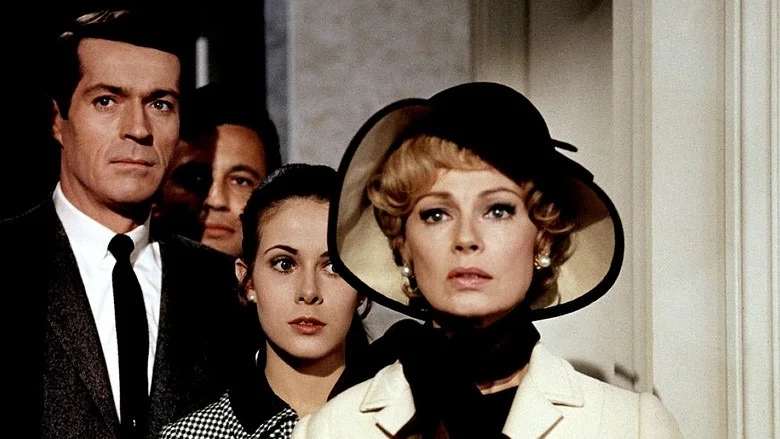Beginner’s Guide to Alfred Hitchcock: Marnie (1964)
Marnie is perhaps one of the most divisive films in Alfred Hitchcock’s career. The film is a thriller, but filmed like a lush melodrama and the story takes strange turns. Marnie was the second, and last, Hitchcock film to star Tippi Hedren; as it turns out, the relationship between the director and the star grew more contentious during the production. Marnie stars Sean Connery during the height of his 007 stardom. Hitchcock’s direction here is striking, albeit quite unusual. I admit, I am in the line of thinking that Marnie is a great Hitchcock psycho-sex thriller.
Marnie (Hedren) is a kleptomaniac, who moves from town to town stealing from her employers. When she is recognized by Mark (Connery), he corners her into marrying him. When Marnie reacts with disgust at Mark’s touch, Mark goes on a quest to get to the bottom of Marnie’s kleptomania… and her indifference to sex. Marnie is a troubling film, with armchair psychology and a resolution that is almost too neat. However, the film’s story is compelling and the nervy performance from Tippi Hedren sells it for me. Sean Connery is less successful at bringing his thin character to life; Marnie is very much a woman’s picture, even if the movie wants to contain its main character.
Part of what makes Marnie such a contentious film is that it is very theatrical and leans into its over-the-top aesthetic. Hitchcock uses matte paintings for backdrops, colored filters to indicate emotions, a grand Bernard Herrmann score, and lavish production design. Critics are divided about how much of this is Hitchcock’s intent and how much of it is Hitchcock not learning the new tricks of 1960s Hollywood. It doesn’t really help that Tippi Hedren’s performance feels very over-cooked to modern audiences. While the performance works for me in this kind of heightened role, I can definitely see how people would be turned off by it.
Marnie is a fascinating film, both because of what’s on the screen and what happened behind the camera. The sexual politics of the film are confusing, especially in 2017. Marnie’s refusal of Mark’s advances are played as frigid and as problem to be solved; though it’s closer to “she’s just not that into you.” Marnie’s relationship with her mother (Louise Latham) is prickly, with the daughter struggling to get her mother’s affections. Hitchcock’s use of feminine imagery—purses, clothes, hair, shoes—is striking and makes for a nice contrast to the idea of Marnie upturning the patriarchy through her crimes.
Recently, Tippi Hedren has claimed that Hitchcock sexually assaulted her during the making of this film. Tension was already brewing between them on the set of The Birds, and Hitchcock began treating her even more coldly during Marnie. Hedren alleges that Hitchcock stopped speaking to her directly after she rejected him. At first, I struggled with these allegations. Hitchcock was always obsessed with his actresses, like Grace Kelly, Eva Marie Saint, and Ingrid Bergman. But I always interpreted those obsessions as schoolboy crushes; Hitchcock admired their beauty, their star power, and their acting talents from afar. But, he thought he created Hedren out of nothing, so maybe he assumed she owed him? Hedren also claims that Hitchcock ruined her career by keeping her under contract, not casting her in any films, or letting her appear in other films for years. It’s not hard to believe that. After all, Hedren landed two starring roles in Hitchcock films at the height of his career—one of them, The Birds, becoming an iconic horror film. She should have had a bright career ahead of her—if Hitchcock hadn’t held her back. These are only allegations, made in her autobiography Tippi and the HBO original film The Girl starring Sienna Miller.
Marnie is truly a strange movie, one that heralded Hitchcock’s worst low point. The fractured relationship between the director and star is unfortunate, even if it created such a singular film. I think Hedren should have had a long career, but now she is the matriarch of an important film dynasty. Having to wrestle with my favorite director being a creep off-screen during this film is tough, to be honest. And yet Marnie, mysterious and captivating as it is, keeps pulling me back in.















